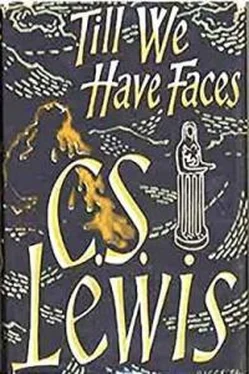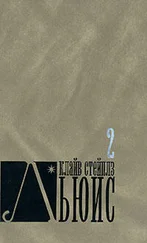It’s strange to think how Bardia went to and fro daily between Queen and wife, well assured he did his duty by both (as he did) and without thought, doubtless, of the pother he made between them. This is what it is to be a man. The one sin the gods never forgive us is that of being born women.
The duty of queenship that irked me most was going often to the house of Ungit and sacrificing. It would have been worse but that Ungit herself (or my pride made me think so) was now weakened. Arnom had opened new windows in the walls and her house was not so dark. He also kept it differently, scouring away the blood after each slaughter and sprinkling fresh water; it smelled cleaner and less holy. And Arnom was learning from the Fox to talk like a philosopher about the gods. The great change came when he proposed to set up an image of her—a woman–shaped image in the Greek fashion—in front of the old shapeless stone. I think he would like to have got rid of the stone altogether, but it is, in a manner, Ungit herself and the people would have gone mad if she were moved; It was a prodigious charge to get such an image as he wanted, for no one in Glome could make it; it had to be brought, not indeed from the Greeklands themselves, but from lands where men had learned of the Greeks. I was rich now and helped him with silver. I was not quite certain why I did this; I think I felt that an image of this sort would be somehow a defeat for the old, hungry, faceless Ungit whose terror had been over me in childhood. The new image, when at last it came, seemed to us barbarians wonderfully beautiful and lifelike, even when we brought her white and naked into her house; and when we had painted her and put her robes on, she was a marvel to all the lands about and pilgrims came to see her. The Fox, who had seen greater and more beautiful works at home, laughed at her.
I gave up trying to find a room where I should not hear that noise which was sometimes chains swinging in the wind and sometimes lost and beggared Psyche weeping at my door. Instead, I built stone walls round the well and put a thatched roof over it and added a door. The walls were very thick; my mason told me they were madly thick. “You’re wasting enough good stone, Queen,” he said, “to have made ten new pigsties.” For a while after that an ugly fancy used to come to me in my dreams, or between sleeping and waking, that I had walled up, gagged with stone, not a well but Psyche (or Orual) herself. But that also passed. I heard Psyche weeping no more. The year after that I defeated Essur.
The Fox was growing old now and needed rest; we had him less and less in my Pillar Room. He was very busy writing a history of Glome. He wrote it twice, in Greek and in our own tongue, which, he said, he now saw was capable of eloquence. It was strange for me to see our own speech written out in the Greek letters. I never told the Fox that he knew less of it than he believed, so that what he wrote in it was often laughable and most so where he thought it most eloquent. As he grew older he seemed to be ever less and less a philosopher, and to talk more of eloquence, and figures, and poetry. His voice grew always shriller and he talked more and more. He often mistook me for Psyche now; sometimes he called me Crethis, and sometimes even by boys’ names like Charmides or Glaucon.
But I was too busy to be with him much. What did I not do? I had all the laws revised and cut in stone in the centre of the city. I narrowed and deepened the Shennit till barges could come up to our gates. I made a bridge where the old ford had been. I made cisterns so that we should not go thirsty whenever there was a dry year. I became wise about stock and bought in good bulls and rams and bettered our breeds. I did and I did and I did—and what does it matter what I did? I cared for all these things only as a man cares for a hunt or a game, which fills the mind and seems of some moment while it lasts, but then the beast’s killed or the king’s mated, and now who cares? It was so with me almost every evening of my life; one little stairway led me from feast or council, all the bustle and skill and glory of queenship, to my own chamber, to be alone with myself; that is, with a nothingness. Going to bed and waking in the morning (I woke, most often, too early) were bad times—so many hundreds of evenings and mornings. Sometimes I wondered who or what sends us this senseless repetition of days and nights and seasons and years; is it not like hearing a stupid boy whistle the same tune over and over, till you wonder how he can bear it himself?
The Fox died and I gave him a kingly funeral and made four Greek verses which were cut on his tomb; I will not write them here lest a true Greek should laugh at them. This happened about the end of harvest. The tomb is up behind the pear trees where he used to teach Psyche and me in summer. Then the days and months and years went on again as before, round and round like a wheel, till there came a day when I looked about me at the gardens and the palace and the ridge of the Grey Mountain out eastward, and thought I could no longer endure to see these same things every day till I died. The very blisters of the pitch on the wooden walls of the byres seemed to be the same ones I had seen before the Fox himself came to Glome. I resolved to go on a progress and travel in other lands. We were at peace with everyone. Bardia and Penuan and Arnom could do all that was needed while I was away; for indeed Glome had now been nursed and trained till it almost ruled itself.
I took with me Bardia’s son Ilerdia, and Poobi’s daughter Alit, and two of my women and a plump of spears (all honest men), and a cook and a groom with pack animals for the tents and victuals, and rode out of Glome three days later.
The thing for whose sake I tell of this journey happened at the very end of it; and even when I had thought it was finished. We had gone first into Phars, where they harvest later than we, so that it was like having that piece of the year twice over; we found what we had just left at home—the sound of the whetting, the singing of the reapers, the flats of stubble widening and the squares of standing corn diminishing, the piled wagons in the lanes, all the sweat and sunburn and merriment. We had lain ten nights or more in Trunia’s palace, where I was astonished to see how Redival had grown fat and lost her beauty. She talked, as of old, everlastingly, but all about her children, and asked after no one in Glome except Batta. Trunia never listened to a word she said, but he and I had much talk together. I had already settled with my council that his second son, Daaran, was to be King of Glome after my day. This Daaran was (for the son of so silly a mother) a right–minded boy. I could have loved him if I had let myself and if Redival had been out of the way. But I would never give my heart again to any young creature.
Out of Phars we had turned westward into Essur by deep passes through the mountains. This was a country of forests greater than I had yet seen, and rushing rivers, with plenty of birds, deer, and other game. The people I had with me were all young and took great pleasure in their travels, and the journey itself had by now linked us all together; all burned brown, and with a world of hopes, cares, jests, and knowledge, all sprung up since we left home, and shared among us. At first they had been in awe of me and had ridden in silence; now we were good friends. My own heart lifted. The eagles wheeled above us and the waterfalls roared.
From the mountains we came down into Essur and lay three nights in the King’s house. He was, I think, not a bad sort of man, but too slavish–courteous to me; for Glome and Phars in alliance had made Essur change her tune. His queen was manifestly terrified by my veil and by the stories she had heard of me. And from that house I had meant to turn homewards, but we were told of a natural hot spring fifteen miles further to the west. I knew Ilerdia longed to see it; and I thought (between sadness and smiling) how the Fox would have scolded me if I had been so near any curious work of nature and not examined it. So I said we would go the day’s journey further and turn then.
Читать дальше











